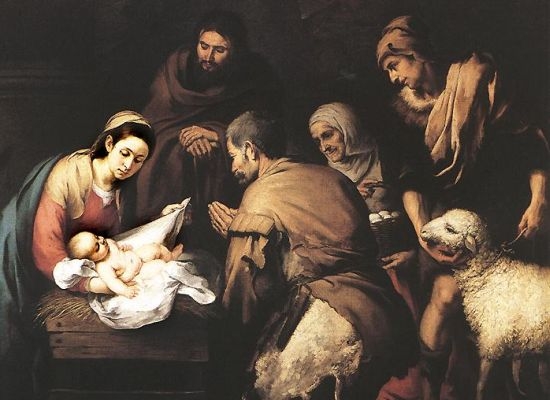January 6 is Christmas according to the calendar of Armenian Church. We asked Bishop Sahag Maşalyan, a member of Armenian Patriarchate of Turkey, why Armenians celebrate Christmas on January 6 instead of December 25.
EMRE ERTANİ
We asked Bishop Sahag Maşalyan, a member of Armenian Patriarchate of Turkey, why Armenians celebrate Christmas on January 6. Stating that it is not possible to set a certain date for the birth of Jesus Christ, because the birthday is not specified in the Bible, Maşalyan said: “In the Gospel of Luke, it is written that Jesus Christ was baptized at the age of 30 and this started the Christian tradition of celebrating his birthday and baptism on the same day. This is the oldest tradition and Armenian Orthodox Church retains it. Thus, our church officially names this holiday “Asdvadza-Haydnutyun” (revelation of God, Theophany), because, during the birth and baptism of Jesus Christ, God perfectly manifested oneself to humanity and the divine word, logos humanized through Jesus Christ."
Reminding that the first record about the celebration date of the birth of Jesus Christ was written by Saint Clement of Alexandria, who is a 3th century theologian, Maşalyan said that Christians who was living in Egypt in 2nd century was celebrating the birth and baptism of Jesus Christ between January 6 and 10.
Maşalyan pointed out that travel notes written by Egeria Silvia of Bordeaux in 386 contains accounts on Christian ceremonies that she came across during her pilgrimage to Israel and these notes support this information about Christians in Egypt. Maşalyan said: “Egeria noted that Christians went to Bethlehem before sunrise in order to celebrate the birth of Jesus and rushed to Jordan River in order to celebrate the baptism of Jesus in the evening. Pope Siricius (d. 399) was also saying that January 6 is 'Natalitia Christi', the birthday of Jesus for Rome.”
A new tradition spreading from Rome
Saying that Christianity began to be spread more effectively after it was adopted by Roman Empire in 4th century, Maşalyan explained why most churches celebrate Christmas on December 25: “One of the most important goals of Christian cultural revolution was doing away with the traces of paganism or transforming and Christianizing them. Celebration of the birth of Invincible Sun (natalis solis invicti) started by Emperor Aurelian in 274 was being commonly celebrated in Rome on December 25. Since the festivities appealed Christians, the church divided the Theophany Holiday on January 6 and moved the celebration of the birth of Jesus to December 25. Jesus' baptism and the visit by three astronomers continued to be celebrated on January 6. It was easy to support this with the teachings of Holy Bible, because the Savior Jesus Christ is named the sun of real peace and justice in the Bible. Thus, starting from 336, Christians adopted the new tradition spreading from Rome and began to celebrate Christmas on December 25. However, this transformation didn't took place immediately. Church communities in the regions where Roman Empire was dominant completed this calendar transformation in 6th century. Only Armenian Orthodox Church retained the oldest tradition. The reasons are as the following:
1- Armenia wasn't located within the borders of Roman Empire.
2- There was no Sun Holiday tradition that should be transformed in Armenian Church. That pagan holiday hadn't been celebrated in the east.
3- With the invention of Armenian alphabet in 405, tradition of liturgy, ceremony and church calendar had already been completed and settled in Armenian Church.
However, this is not the only calendar difference among the churches. For instance, there are many churches that celebrate Christmas on January 7, such as Russian, Georgian, Ukrainian, Macedonian, Karabakh, Serbian, Coptic and Ethiopian Orthodox Churches. In fact, these churches celebrate Christmas on December 25 in accordance with the old Julian calendar. However, there is a 13-day difference between the new Gregorian calendar and the old Julian calendar and because of that, it is thought that they celebrate it on January 7. Similarly, Jerusalem Armenian Orthodox Church still uses the Julian calendar and their celebration on January 6 corresponds to January 19 in our calendar.”
“Christmas celebrations last for 60 days”
Pointing out that all churches agree that the birth of Jesus should be celebrated through a season, Maşalyan said, “So, this season that starts on November 20 ends on January 20. Though it is not easy to realize in a Muslim country, the energy, excitement and glory of this season in Christian countries is like revealing that the person whose birth is celebrated is at the center of the world history. There is no other person on earth whose birthday is celebrated like this.”





